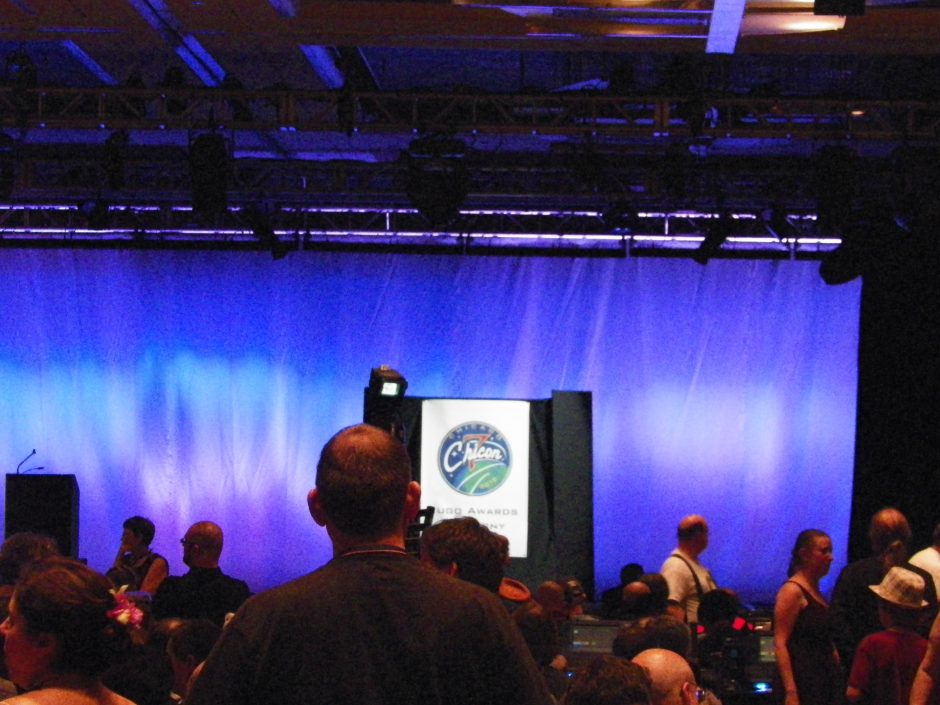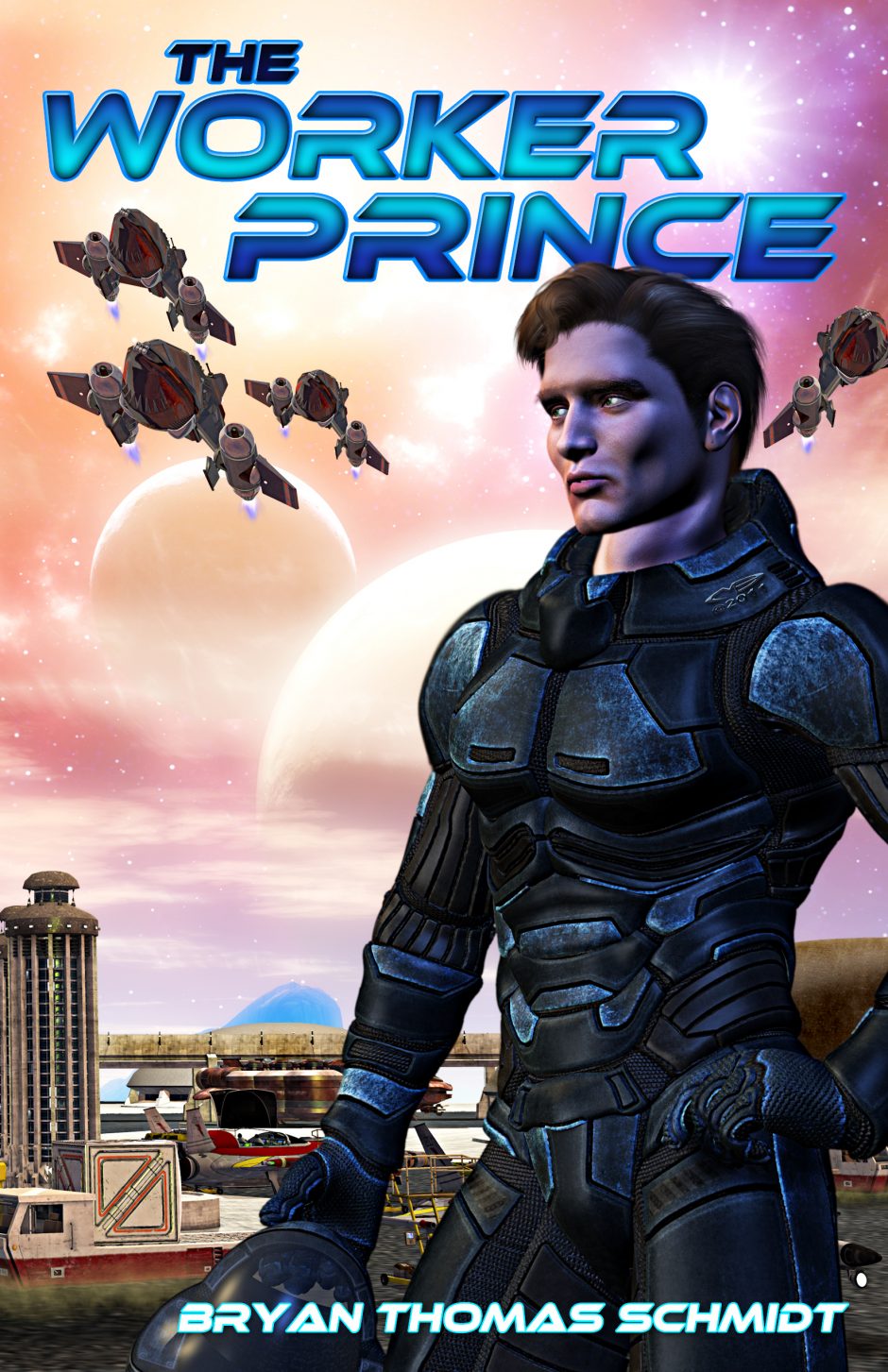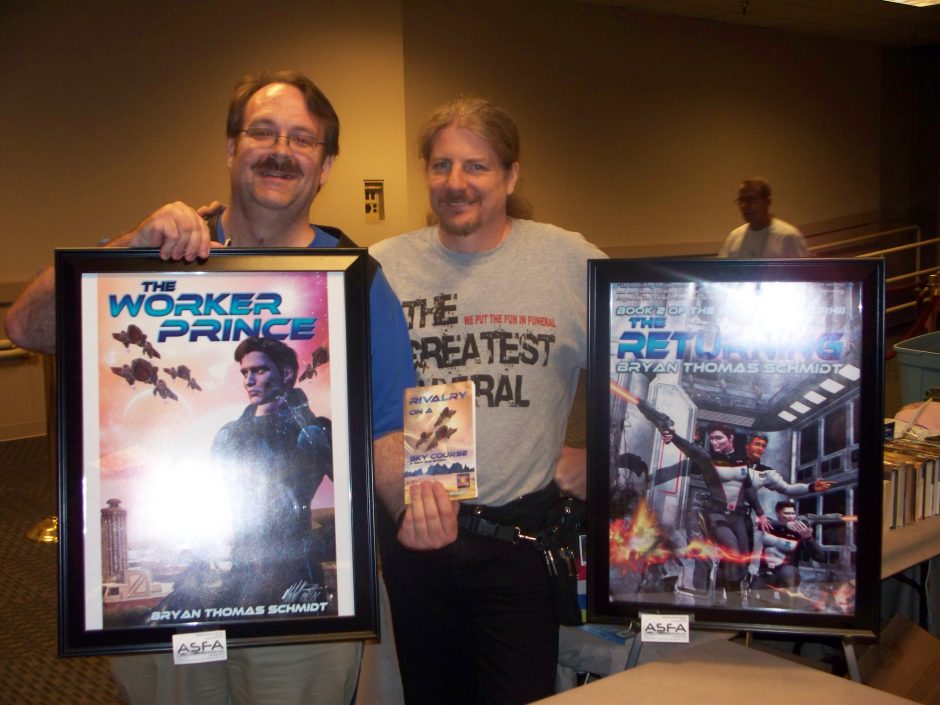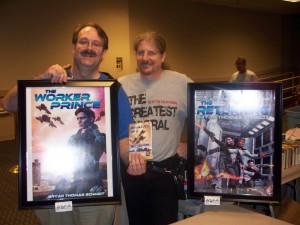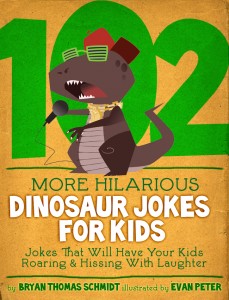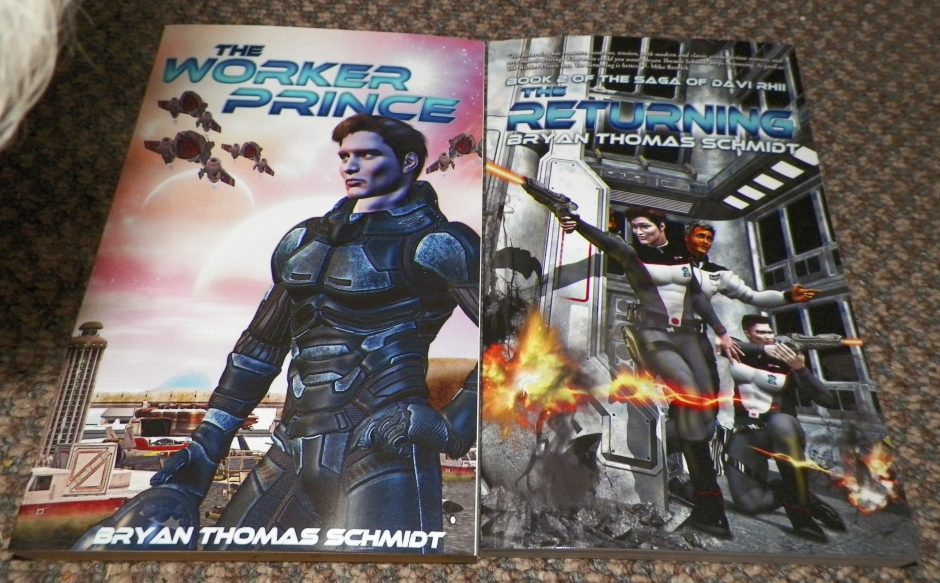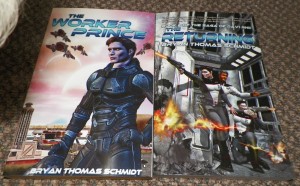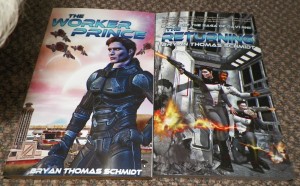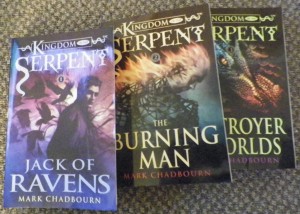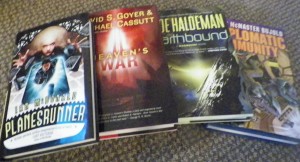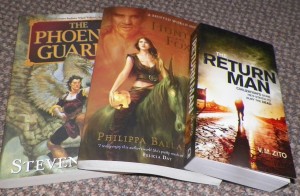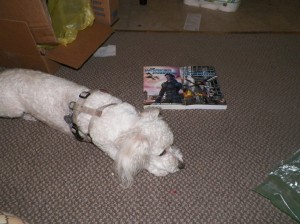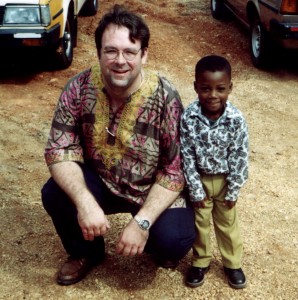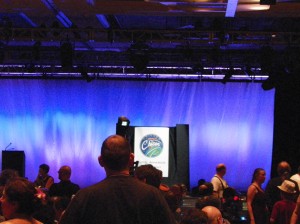 It’s hard to wrap my mind around all that happened for the past four days in Chicago. For me, this turned out to be the best Con experience ever on all levels. I’m so happy I decided to go in spite of my financial struggles and very grateful to the support and encouragement shown me from so many corners.
It’s hard to wrap my mind around all that happened for the past four days in Chicago. For me, this turned out to be the best Con experience ever on all levels. I’m so happy I decided to go in spite of my financial struggles and very grateful to the support and encouragement shown me from so many corners.
The highlight of any Con is usually relationship and networking but I think it was doubly true of Chicon 7 because I had the chance to meet so many people I’ve gotten to know strictly online the past few years, all for the first time. Jamie Todd Rubin, Jean Johnson, Jason Sizemore, Maurice Broaddus, Janet Harriett, Jay Lake, Brad Beaulieu, Cat Rambo, Madison Woods, Stina Leicht, David Boop, James Enge, Howard Andrew Jones, Chuck Gannon, Brad Torgersen, Robert J. Sawyer, Robert Silverberg, Myke Cole, John Helfers, Lissa Price, Nancy Kress, Tim Akers, Adam Christopher, Charles Stross, Jason Waltz, Courtney Schafer, Barb Galler-Smith, Cat Valente, Nancy Fulda, Randy Henderson, Michael Flynn, Nnedi Okorafor, Jacqueline Lichtenberg, John Picacio, Annie Bellet, Alastair Mayer, Matt Forbeck, Tim Ward, Brad Wheeler and Jack McDevitt were all new face to face encounters. (I likely forgot some too). Plus I renewed and built acquaintance with many I’d met before. With some I talked business, with others just chit chat on all kinds of topics. With some, I panelled. With others, I moderated. With others, I drank and ate. And with almost all, I laughed.
My first ever WorldCon panel was a reading that took place 90 minutes after I arrived on severely delayed Amtrak train and after a scary taxi ride which involved sidewalk and wrong way driving and which the driver explained with the comment “I am new.” The reading, however, went very well. I had listened to Nancy Fulda and another reading prior to that. And I read two passages I have read before. Authors and editors made up the audience and complimented my reading for days after, which made me feel good. I really don’t like readings and they make me nervous. It was good to know that I might actually be better than some at it.
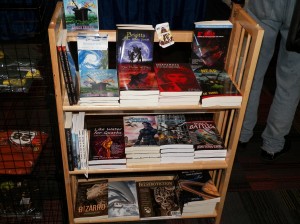 Volunteering at the SFWA table brought new encounters with David Brin, who impressed me with his kind consideration, Edward Lerner, Alan Dean Foster and many others. The SFWA Suite with its relaxed atmosphere and free provisions was a godsend and privilege. The Green Room and Con Suite also came in very handy in this regard. 15 meals over 5 days, I paid for 7 and four of those were during train trips. Pretty amazing blessing. My roommates, Don Mead and David Steffen, also turned out to be easy to get along with and fun. Don and I had met before but David was new. They took me to the Codex breakfast Saturday which was a nice opportunity as well, since I have been interested in Codex for a while. My signing Friday with Nnedi, Jacqueline Lichtenberg, Mike Flynn, Seanan McGuire and others was quiet but did sell three books and an ebook and have one person who already owned the book come to get it signed. Book Universe sold at least one more copy and Larry Smith also had copies which I got Jean Johnson, Mike Resnick and Patrick Hester to sign.
Volunteering at the SFWA table brought new encounters with David Brin, who impressed me with his kind consideration, Edward Lerner, Alan Dean Foster and many others. The SFWA Suite with its relaxed atmosphere and free provisions was a godsend and privilege. The Green Room and Con Suite also came in very handy in this regard. 15 meals over 5 days, I paid for 7 and four of those were during train trips. Pretty amazing blessing. My roommates, Don Mead and David Steffen, also turned out to be easy to get along with and fun. Don and I had met before but David was new. They took me to the Codex breakfast Saturday which was a nice opportunity as well, since I have been interested in Codex for a while. My signing Friday with Nnedi, Jacqueline Lichtenberg, Mike Flynn, Seanan McGuire and others was quiet but did sell three books and an ebook and have one person who already owned the book come to get it signed. Book Universe sold at least one more copy and Larry Smith also had copies which I got Jean Johnson, Mike Resnick and Patrick Hester to sign.
Friday lunch was with Maurice Broaddus, then later I did the signing and attended Saladin Ahmed’s packed reading before Friday night dinner with the Black Gate folks, including editor John O’Neill, Howard Andrew Jones, James Enge, and also Rich Horton and Jason Waltz of Rogue Blades. Great people, great conversation, and a lot of fun. Then had Bar Con time with Cat Rambo, Brenda Cooper, Tom King, Matt Forbeck, John Helfers, Madison Woods and several others and also attended the Night Shade Party and met some former and future sffwrtcht guests, caught up with Jeremy Lassen, etc.
Saturday was lunch with Jay Lake, a friend I’d never met face to face, then my first group panel ever for WorldCon–Moral Ambiguity in Science Fiction–was also my first time moderating at WorldCon and was a fabulous experience. With names like Nancy Kress, Charles Stross and Jay Lake on the panel, I was prepared to just keep to myself and ask questions but all deferred to me to lead them and our interactions were a lot of fun. The standing-room-only audience seemed to enjoy it and we got many compliments after. Recorded it for a possible future podcast. Then I went to moderate Vivid Character Building which had Kay Kenyon, Carol Berg, Teresa Frohock, and Randy Henderson and I waxing about how we create characters. Fun but challenging to cover in such a format with broad strokes. Also recorded.
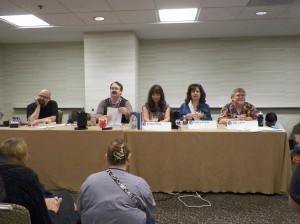 That pretty much wore me out for Saturday so I went back for a brief nap then hung in the bar with Jamie Todd Rubin, Kay Kenyon, Louise Marley, Jay Werkheiser, Lisa Montoya, Patrick Swenson, Tod McCoy, Jennifer Brozek and some others, a great time. Somehow in the midst of it my Space Sports anthology idea became more than just an idea and I now have a fourth antho in the works. Then on to Pink and Blue Party to celebrate and the TOR party as well. Sunday, my free day, I slept in then hung with Jean Johnson and her mum, Madison Woods, Patrick Hester, John DeNardo, Robert Silverberg, David Kyle, David Boop, Brenda Cooper, Nancy Kress, Cat Rambo, Patrick Swenson, Jennifer Brozek, Glen Cook and others. I also attended the only panel I got to in which I didn’t participate and which was a GOH panel and wound up hanging out after with Mike Resnick who had failed to recognize me like so many others due to my mustache despite speaking with me several times, one of which I’d given him gifts. It was a funny moment of recognition and we had some good laughs after. He introduced me to Jack McDevitt at long last and a few others as we walked the dealer’s room together and chatted.
That pretty much wore me out for Saturday so I went back for a brief nap then hung in the bar with Jamie Todd Rubin, Kay Kenyon, Louise Marley, Jay Werkheiser, Lisa Montoya, Patrick Swenson, Tod McCoy, Jennifer Brozek and some others, a great time. Somehow in the midst of it my Space Sports anthology idea became more than just an idea and I now have a fourth antho in the works. Then on to Pink and Blue Party to celebrate and the TOR party as well. Sunday, my free day, I slept in then hung with Jean Johnson and her mum, Madison Woods, Patrick Hester, John DeNardo, Robert Silverberg, David Kyle, David Boop, Brenda Cooper, Nancy Kress, Cat Rambo, Patrick Swenson, Jennifer Brozek, Glen Cook and others. I also attended the only panel I got to in which I didn’t participate and which was a GOH panel and wound up hanging out after with Mike Resnick who had failed to recognize me like so many others due to my mustache despite speaking with me several times, one of which I’d given him gifts. It was a funny moment of recognition and we had some good laughs after. He introduced me to Jack McDevitt at long last and a few others as we walked the dealer’s room together and chatted.
Sunday night was the Hugos and it was an emotional night despite my seat in the back row boonies and a packed crowd. Having peers who are friends and coming up alongside nominated and win was touching and exciting. It added to the feeling I got from other encounters there that I had come of age and graduated from fan/wannabe into a pro member of the group. When writers whose names you know also know your name, even those you have not spoken with, its humbling and encouraging. All the more so when you become friends. Was happy with several friends’ wins including Ursula Vernon, John DeNardo, Ken Liu, Jim Hines, Charlie Jane Anders, and Cat Valente, amongst others. It was a typical award ceremony but fun to be in the room for the first time.
The after parties were a disappointment. They made it private for a while first and had rude security and for those of us with travel and early panels, it became a bust. I did finally run into a few winners and congratulate them, including E. Lily Yu, Betsy Wollheim, Liza Trombi and the Locus gals, John DeNardo and JP Frantz. Then hung with DeNardo, his wife, daughter and Patrick Hester for a bit after before bed.
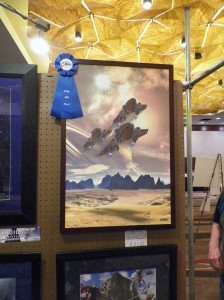 Monday’s early Faith In SFF panel, which, ironically, I proposed, turned out a disappointment. Someone else moderated despite knowing I’d proposed the panel and allowed it to turn negative in ways that I don’t think were helpful. It also became more of a survey than fruitful discussion in many ways. Michael Flynn was a surprise addition and I felt he contributed some of the most helpful comments if there were any. Altogether, if I had it to do over, I would not have proposed doing that panel with others and just led it on my own with a few invited participants or at least would have skipped out on this version. Oh well. Between Sunday night’s party fiasco and that panel then low book sales and a rush to leave, Monday was mostly a bust but did get to sit down and chat a while with Jack McDevitt, who’s fantastic.
Monday’s early Faith In SFF panel, which, ironically, I proposed, turned out a disappointment. Someone else moderated despite knowing I’d proposed the panel and allowed it to turn negative in ways that I don’t think were helpful. It also became more of a survey than fruitful discussion in many ways. Michael Flynn was a surprise addition and I felt he contributed some of the most helpful comments if there were any. Altogether, if I had it to do over, I would not have proposed doing that panel with others and just led it on my own with a few invited participants or at least would have skipped out on this version. Oh well. Between Sunday night’s party fiasco and that panel then low book sales and a rush to leave, Monday was mostly a bust but did get to sit down and chat a while with Jack McDevitt, who’s fantastic.
Also, Mitch Bentley’s cover from my Davi Rhii prequel ebook Rivalry On A Sky Course won Judge’s Choice Award in the ChiCon 7 Art Show so that was pretty thrilling for all involved.
That’s pretty much what went on from my perspective. Another post will go up tomorrow on some thoughts and feelings about the World Con experience. You can find that post now here: https://bryanthomasschmidt.net/2012/09/06/worldcon-recap-part-2-a-family-reunion-coming-of-age/
Bryan Thomas Schmidt is an author and editor of adult and children’s speculative fiction. His debut novel, The Worker Prince(2011) received Honorable Mention on Barnes & Noble Book Club’s Year’s Best Science Fiction Releases for 2011. A sequel The Returning followed in 2012 and The Exodus will appear in 2013, completing the space opera Saga Of Davi Rhii. His first children’s books, 102 More Hilarious Dinosaur Books For Kids (ebook only) and Abraham Lincoln: Dinosaur Hunter- Lost In A Land Of Legends (forthcoming) appeared from Delabarre Publishing in 2012. His short stories have appeared in magazines, anthologies and online. He edited the anthology Space Battles: Full Throttle Space Tales #6 (2012) and is working on World Encounters and Space & Shadows: SpecNoir with coeditor John Helfers, both forthcoming. He hosts #sffwrtcht (Science Fiction & Fantasy Writer’s Chat) Wednesdays at 9 pm ET on Twitter and is an affiliate member of the SFWA.

